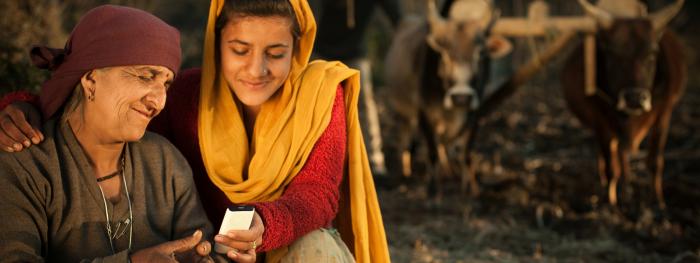By Marianne Mwaniki, Senior Vice President, Social Impact, Visa Inc.
In conjunction with International Women’s Day on March 8, 2019, AFI is publishing a series of blog posts throughout the week including contributions from our donors and private sector partners. Join us in embracing innovative ways to advance gender equality and women’s economic empowerment.
Women are key to creating social and economic impact. Not only do women influence the prosperity of future generations by investing as much as 90% of their income in their family and their children’s success,[1] they also contribute significantly to growth and jobs. In Africa, women own one third of all formal small and medium-sized businesses[2] – even more taking in to account informal business.
The potential is clear. But while financially empowered women multiply development outcomes, they have less access to financial services, facing a 9% global gender gap in financial inclusion. The situation is even more challenging among women small business owners in developing countries: 70% are underserved with financial services.[3]
The great news is that we can and are changing this. There is no silver bullet. It requires persistent, hard work in three areas:
- Keeping women at the center of policy and product design.
- Changing laws and policies to include and protect women and equality.
- Leveraging technology to overcome barriers like physical access and bias, and even to help to shift social and cultural norms.
A Public-Private Dialogue (PPD) partner of AFI, Visa addresses these areas is by partnering with institutions that have strong relationships and deep insights in to women, including Women’s World Banking (WWB). In 2017, Visa announced our Foundation’s inaugural grant of $20 million to WWB to grow the incomes and increase control of household finances for 1.5 million women-owned micro and small businesses.
In the first year, WWB launched a Leadership and Gender Diversity Program for central bankers and financial policymakers in conjunction with the Oxford University and AFI. This will encourage more gender positive policies across dozens of countries. WWB also completed research in Nigeria and Egypt and tested savings solutions in Mexico and India, which will be rolled out starting this year.
This week, Visa launched a Women’s Global Edition of its five-year-old Visa Everywhere Initiative. This program will recruit female entrepreneurs from around the world, and turn them loose on the biggest payments and social challenges on earth. The challenge seeks solutions that drive social impact by supporting sustainable and equitable livelihoods, and strengthening local and regional economies.
These steps are among the many that Visa and our other partners are taking to enable women and the businesses they run to thrive!

